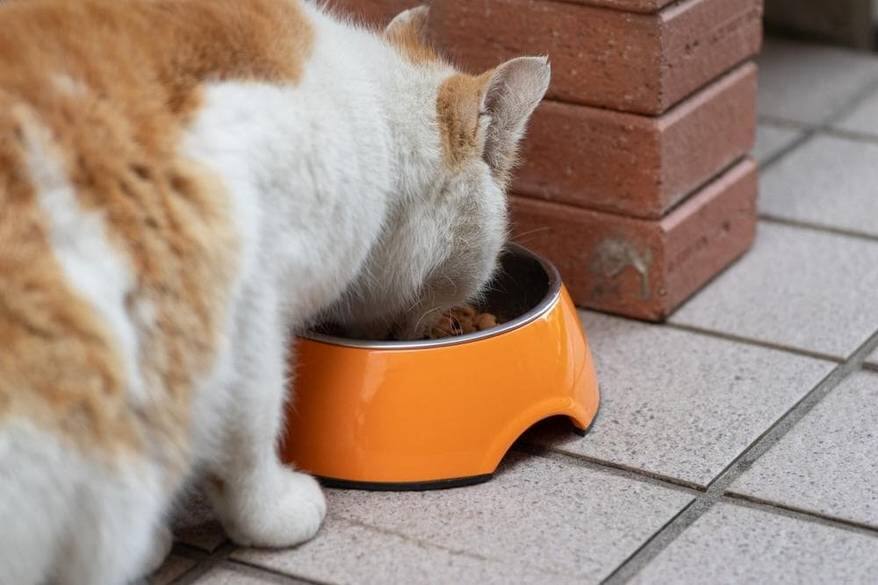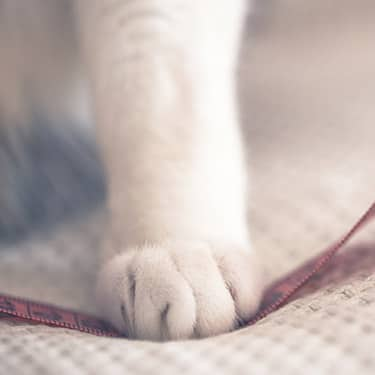
-
Find the right food for your pet
Take this quiz to see which food may be the best for your furry friend.
Find the right food for your pet
Take this quiz to see which food may be the best for your furry friend.
Featured products
 Adult Perfect Weight & Joint Support Chicken Recipe Dry Dog Food
Adult Perfect Weight & Joint Support Chicken Recipe Dry Dog FoodThis weight management and mobility support dog food was created with Hill’s unique understanding of the biology of overweight dogs.
Shop Now Adult 7+ No Corn, Wheat, Soy Chicken & Brown Rice Dog Food
Adult 7+ No Corn, Wheat, Soy Chicken & Brown Rice Dog FoodSupports energy level and beautiful coat in mature dogs
Shop Now Adult 7+ Perfect Digestion Chicken, Whole Oats & Brown Rice Recipe Dog Food
Adult 7+ Perfect Digestion Chicken, Whole Oats & Brown Rice Recipe Dog FoodScience Diet's breakthrough nutrition supports ultimate digestive well-being & healthy microbiome for dogs age 7+
Shop NowFeatured products
 Adult Savory Chicken Entrée Cat Food
Adult Savory Chicken Entrée Cat FoodPrecisely balanced nutrition with the delicious taste of savory minced chicken to help fuel the energy needs of cats during the prime of their life
Shop Now Perfect Weight Salmon & Vegetable Canned Cat Food
Perfect Weight Salmon & Vegetable Canned Cat FoodOver 70% of cats lost weight within 10 weeks when fed this nutrition
Shop Now Adult Perfect Digestion Chicken, Barley & Whole Oats Recipe Cat Food
Adult Perfect Digestion Chicken, Barley & Whole Oats Recipe Cat FoodScience Diet's breakthrough nutrition supports ultimate digestive well-being & healthy microbiome
Shop Now -
Dog
- Dog Tips & Articles
-
Health Category
- Weight
- Food & Environmental Sensitivities
- Urinary
- Digestive
- Joint
- Kidney
-
Life Stage
- Puppy Nutrition
- Adult Nutrition
- Senior Nutrition
Cat
- Cat Tips & Articles
-
Health Category
- Weight
- Skin & Food Sensitivities
- Urinary
- Digestive
- Kidney
-
Life Stage
- Kitten Nutrition
- Adult Nutrition
Featured articles
 Water
WaterDiscover why water is the most important nutrient for your dog or cat to live a healthy life. Find out how much water your pet should consume each day.
Read More Pet Food Storage Tips
Pet Food Storage TipsDiscover how and where to store your dry, as well as canned, dog and cat food. Learn how to find the "best before" dates on all Hill's pet food packaging.
Read More The Incredible Science Behind Your Pet's Microbiome
The Incredible Science Behind Your Pet's MicrobiomeLearn what a pet's microbiome is, how it contributes to your pet's gut & overall health, and why nutrition is important in maintaining healthy microbiomes.
Read More -
Find the right food for your pet
Find the right food for your pet


As any pet parent knows, one of life's simple pleasures is petting your cat. But if they have sensitive skin, that simple pleasure might not be so pleasant for either of you. If you notice something's up with your cat's skin or coat, make an appointment with your veterinarian to determine the cause and restore your cat's skin health.
In the meantime, here's what you should know about cat sensitive skin treatment, causes and signs and how to support your feline friend so they can feel better quickly.
What Cat Sensitive Skin Looks Like
Your cat's skin is an essential organ, serving as a protective barrier to the environment. However, allergic dermatitis (skin allergies) and other irritating factors, such as parasites, can compromise cat skin health. When your cat's skin barrier is damaged, it can cause discomfort and make them more vulnerable to infections and the outside world.

Signs of Skin Allergies and Diseases
Cats can be allergic to certain ingredients in food; environmental factors like pollen, dust or mold; or flea or mosquito bites. Signs of skin conditions can include:
Excessive chewing, licking or scratching (overgrooming), especially at the head and neck
Hair loss or bald patches
Thickened skin, scabs or crusty spots under the fur
Flaky, scaly patches under the fur
Redness, swelling or bumps
Strong odor
Other Signs of Skin Concerns
In some cases, your cat may not be allergic to anything at all. Their skin may just require a little extra care to look, feel and function at its best. Any skin that's not in peak condition can be considered sensitive. Here are some signs that something's amiss:
Greasy fur
Dandruff flakes
Dull, lifeless coat
Cat Sensitive Skin Treatment: What Can You Do?
Start With a Veterinarian Visit
If you notice any signs of trouble with your cat's skin or coat, make an appointment with your veterinarian. Some signs of sensitive or compromised skin can indicate an underlying disease, such as thyroid disease or diabetes. Regardless of the cause, getting a proper diagnosis from your vet is essential to effective treatment.
Check for (and Prevent) Pests
Thoroughly examine your cat's coat and skin for ticks, fleas, mites, lice or other parasites before your vet visit. Ask your veterinarian about preventive treatments to help keep pests at bay.


Tasty Tips
Ask About Allergies
Skin allergies cause inflammation that results in licking, scratching, hair loss and dry, flaky skin. Your vet will ask you about your cat's routine, food and home environment; perform a full-body exam; and recommend blood or skin tests if necessary to help determine the cause. Treatment may include oral and topical medications, from antihistamines to shampoos, depending on the cause of your cat's allergies.
Feed Your Cat Well
What your cat eats plays a large role in their skin health. Even if the cause of their skin condition isn't related to nutrition, start by feeding your cat a complete and balanced food for their life stage.

How Nutrition Can Support Cat Sensitive Skin
Feeding your cat a complete and balanced food designed to support sensitive skin can help them look and feel their best. Your vet may suggest a food formulated for skin sensitivity or made without certain ingredients if an ingredient allergy is to blame for your cat's sensitive skin.
Here are some common features of foods that support skin health:
Antioxidants, including vitamin C, vitamin E and beta-carotene, to support immune system health and protect your cat from free radical cellular damage
High-quality protein and essential amino acids to provide key building blocks for skin
Omega-6 and omega-3 fatty acids (often found in fish oil) to support healthy skin and coat
Caring for Your Cat's Largest Organ
Supporting your cat's sensitive skin can be as simple as providing a quality, complete and balanced food. In other cases, getting your cat back to their best self may require medication, preventive treatment or changes in grooming. Your veterinarian can help you design an appropriate approach for your cat's needs. Together, you can watch your furry friend look and feel better, which is rewarding for everyone involved. Cat sensitive skin treatment doesn't have to be complicated. With a little support, the rewards are easy to see and feel!


Dr. Karen Louis owns her low stress veterinary clinic near St. Louis. When she's not helping dogs and cats live their best lives, she maintains her blog, VetChick.com, and is an award winning nature photographer.
Related products

Feline Adult Perfect Weight Variety Pack

Precisely balanced nutrition with the delicious taste of savory minced chicken to help fuel the energy needs of cats during the prime of their life

Over 70% of cats lost weight within 10 weeks when fed this nutrition

Science Diet's breakthrough nutrition supports ultimate digestive well-being & healthy microbiome
Related articles

How do you get a cat to lose weight? Learn all about cat foods for weight loss, including how to choose weight control cat food and exercise tips.

What is the best food for an overweight cat? Learn all about weight control food for cats, including what's in it and how it works.

Discover the benefits of Hill's line of kitten foods and how they provide complete and balance nutrition for growing kittens.

Discover which cat toys games your feline friend might like, and how they are great sources of exercise. Explore our library of articles to learn more.

Put your cat on a diet without them knowing
Our low calorie formula helps you control your cat's weight. It's packed with high-quality protein for building lean muscles, and made with purposeful ingredients for a flavorful, nutritious meal. Clinically proven antioxidants, Vitamin C+E, help promote a healthy immune system.
Put your cat on a diet without them knowing
Our low calorie formula helps you control your cat's weight. It's packed with high-quality protein for building lean muscles, and made with purposeful ingredients for a flavorful, nutritious meal. Clinically proven antioxidants, Vitamin C+E, help promote a healthy immune system.

